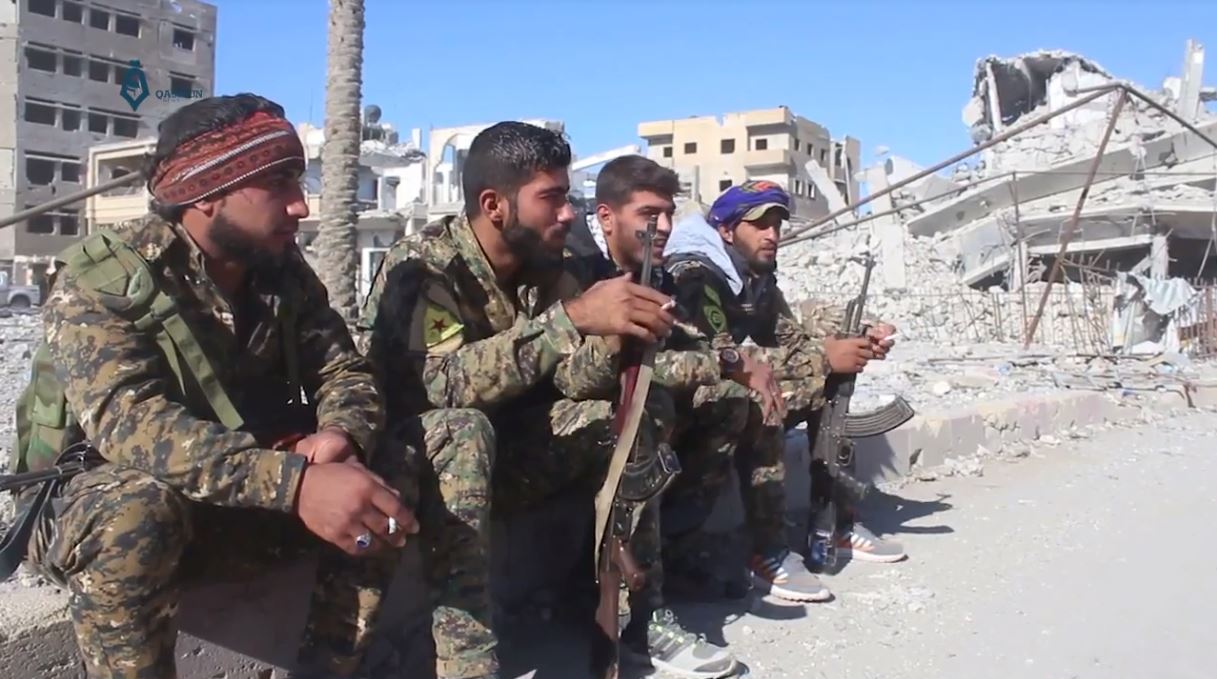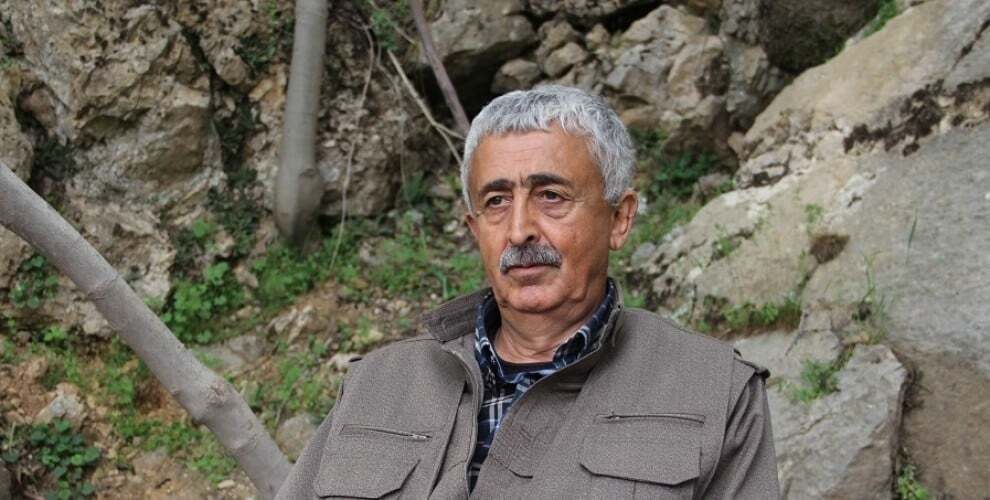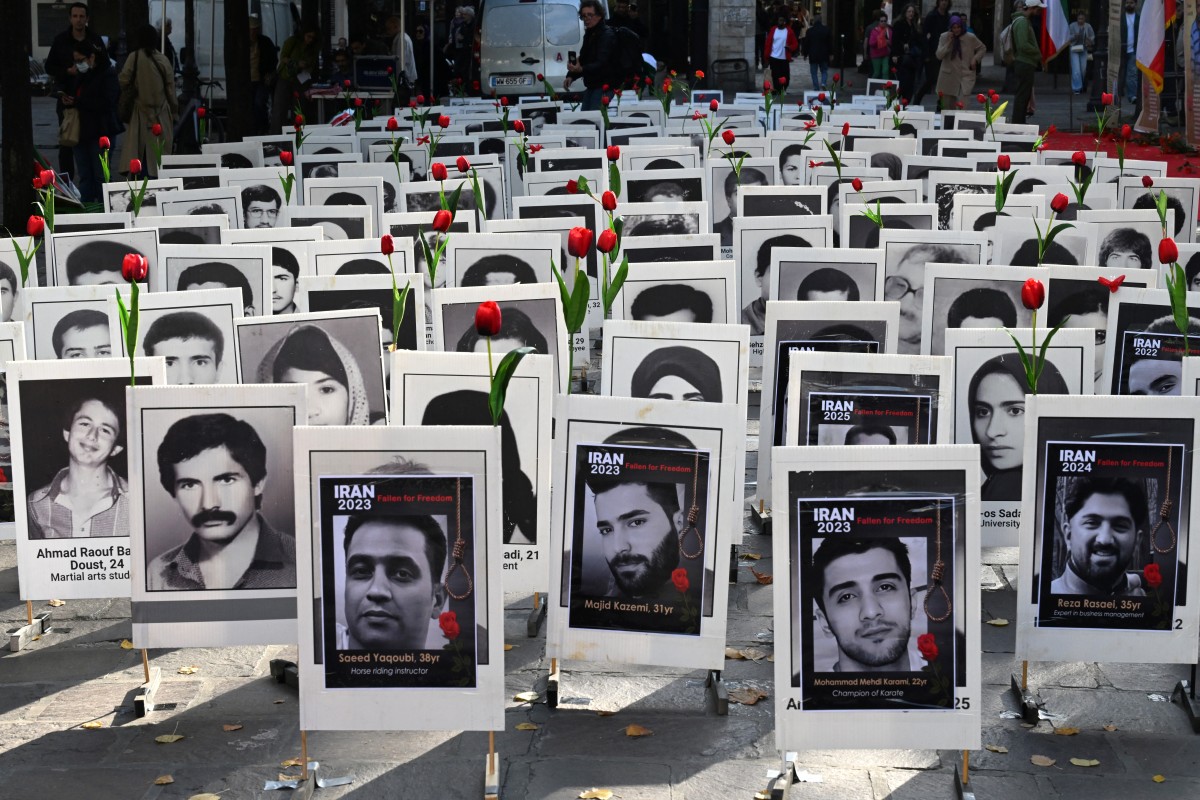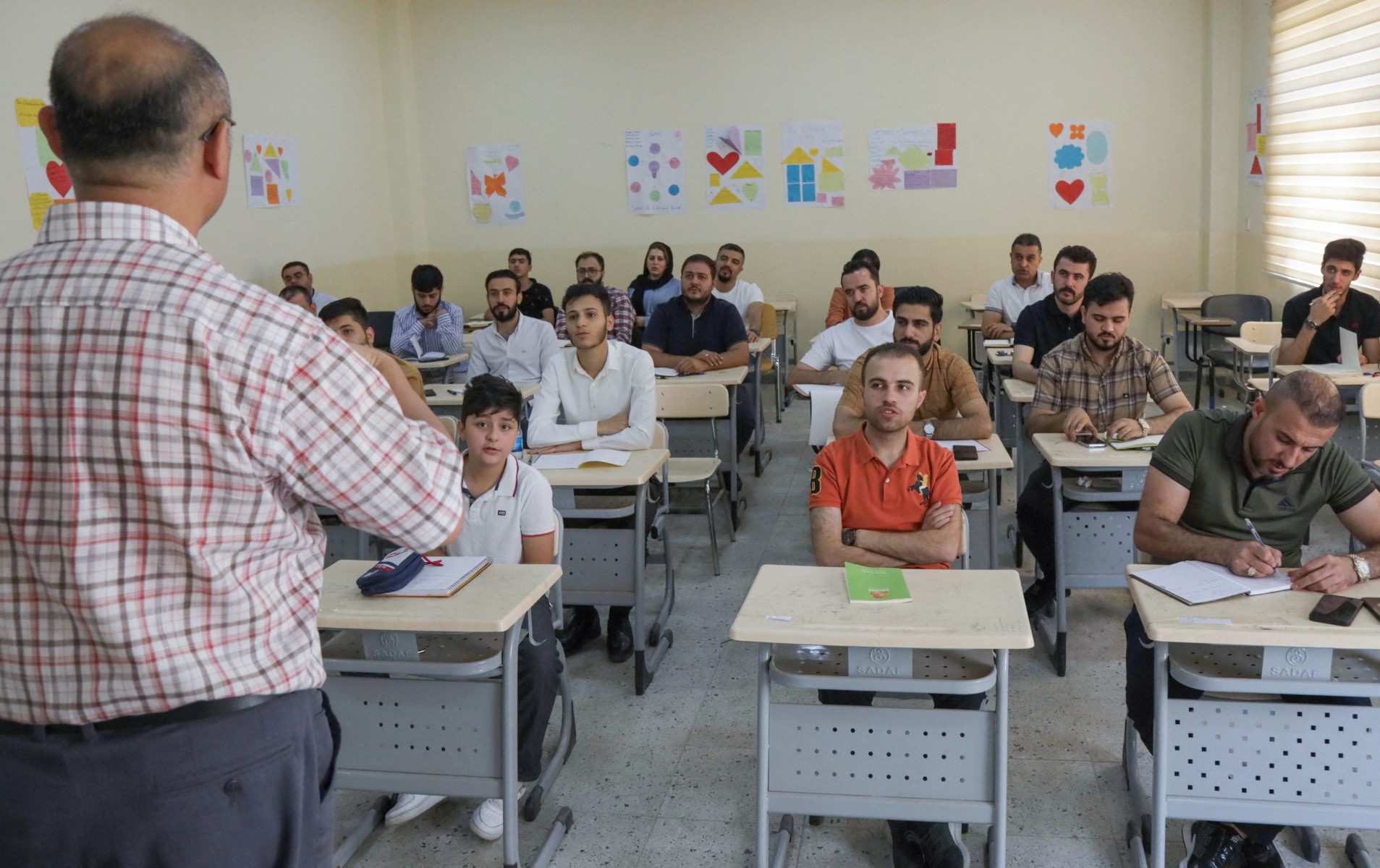‘The Process’ and Rojava

Members of the Syrian Democratic Forces in Raqqa | Picture Credits: Qasioun News Agency / Wikimedia Commons
Members of the Syrian Democratic Forces in Raqqa, Syria | Picture Credits: Qasioun News Agency / Wikimedia Commons
The announcements made by Turkish state officials in the first few months of the current resolution process suggest that the process has two legs—one in Turkey and the other in Syria—, and that the two legs are symmetric.
As the Kurdish resistance in Turkey and Syria has mainly been led by the Kurdistan Workers’ Party (PKK) and the PKK-affiliated Syrian Democratic Forces (SDF), respectively, the Turkish state insisted that the process should work in both spaces in similar ways. The terms of the process would, according to Ankara, be as follows: both the PKK and the SDF must dissolve and disarm and Kurds in Turkey and Syria would be integrated into the respective country’s state/society. Meanwhile, there would be no room for decentralisation in administration in either country.
Even a crude observation of the developments of the past 12 months indicates that the resolution process in Turkey and Syria has not been and is not likely to be symmetric. While the steps taken by the PKK have more or less met the Turkish state’s expectations, the SDF and the Kurds in Syria are far from the steps expected by the Turkish state.
Although there have been no major clashes between the SDF and the Syrian regime forces, the SDF is nowhere close to laying down arms or disbanding.
The PKK has already dissolved itself and withdrawn its militants to Iraqi Kurdistan, waiting for the passing of ‘the transition law’ in the Turkish parliament to lay down their arms and return to ‘the country’. Likewise, Abdullah Öcalan, the PKK, and the DEM Parti have announced quite a few times that they are ready to integrate into the Turkish state andsociety, though with the conditionthat the integration in question has to be a democratic one, without however clarifying how this is to be ensured, given the differences between the Turkish state and the Kurdish movement’s respective visions.
Although the steps taken in Turkey have more or less satisfied the Turkish state, the picture in Rojava is different. Although there have been no major clashes between the SDF and the Syrian regime forces, the SDF is nowhere close to laying down arms or disbanding. Kurds in Syria are not keen on the idea of Rojava being ruled from Damascus. While the SDF officials often announced that they are not pursuing independence and that they do accept being part of the Syrian state and nation, they also made it clear that they would not lay down their arms, dismantle their administrative bodies, or dissolve Kurdish identity within Syrian national identity.
Unsurprisingly, the Turkish state did not welcome this asymmetry in the Turkish and Syrian legs of the process, warning the SDF that it should abide by the 10 March Agreement signed between the SDF and the Syrian Interim Government and that the Kurds in Syria should integrate into the new regime. However, the recent course of events in Syria suggests that the asymmetry in question will not evaporate soon.
Syria Facts
The ambiguous wording of the 10 March Agreement between the Syrian regime and the SDF enables the latter to insist on its own terms without violating the memorandum. This is to say that the fulfilment of the Agreement does not firmly require that developments in Rojava would run parallel to the process in Turkey. Moreover, massacres committed in Syria, especially those targeting the ‘Alawis, and the clashes between Druze and pro-regime forces in Suwayda, proved that the SDF’s security concerns are not baseless and that the regime cannot be trusted.
Facts on the ground in Syria suggest that the SDF cannot easily follow the PKK’s path in Turkey.
The first fact in this regard is political. It is evident that building a true national unity around the core of Hayat Tahrir al-Sham (HTS) is almost impossible. After fifteen years of civil war, it is unrealistic to expect Kurds to join an HTS-dominated political order and national unity. The second fact is ideological. The ideological gulf between Kurds and HTS is vast. While the administration in Rojava envisions a secular, pluralistic, and decentralized Syria, the Ahmad al-Sharaa regime intends to have a centralized Syrian Arab Republic run by Sharia Law. The military facts are likewise. The al-Sharaa regime lacks the military capacity to impose its will upon Kurds. In other words, the regime in Syria is deprived of the necessary means to exert sovereignty in the lands populated by Kurds. Lastly, there are geopolitical facts. The regional and international balance of power that shapes Syria today does not support the vision of a centralised Syrian Arab Republic run by Sharia Law. Not only Israel, but none of the key actors involved in the Syrian theatre seems to be ready to endorse this model.
Both the recent course of events and the crude facts in Syria render the idea of a centralised Syrian Arab Republic run by Sharia Law obsolete, consolidating the asymmetry between the legs of the process in Rojava and Turkey.
Turkey’s Possible Response
As the Syrian regime’s military and administrative capacity is weak, it has been made even weaker by Israel’s attacks. Turkey may find it difficult to make its ally capable of crushing the SDF
The compelling question, then, is this: Would Turkey bear with this asymmetry, and if so, until when? Roughly speaking, Turkey has several options in case the process in Rojava does not move along its expectations. First, Turkey may encourage or enforce the al-Sharaa regime “to finish the job”. In other words, Turkey may provide more military and financial support and ask the regime to end the SDF-ruled areas in the East of the Euphrates. Second, Turkey can try to finish the job itself. That is, Turkey can opt to end the SDF and the Autonomous Administration by means of a direct military intervention. Third, Turkey can bear with the asymmetry between the two spaces and try to be on good terms with Kurds and Arabs in Syria together. Fourth, Turkey can lower its expectations and start to pursue a more workable path in Rojava.
By partially lowering its expectations and aligning its Syria vision with the crude facts on the ground, Turkey can find a way of digesting the new Syria.
As to their plausibility, the first path looks rather impractical. As the Syrian regime’s military and administrative capacity is weak, it has been made even weaker by Israel’s attacks. Turkey may find it difficult to make its ally capable of crushing the SDF. Besides, such a move by the Turkish state could prompt Israel—and possibly others—to engage in moves that could refresh the proxy war in Syria. Should this happen, the new regime may even collapse, a scenario that would upset all those actors who welcomed Assad’s defeat in Syria. The second option is no less practical. A unilateral Turkish attempt to establish order in Syria via its own military and administrative capacity would generate the risk of direct confrontation with Israel and could simultaneously bring down the peace process in Turkey. Given the current regional environment, Turkey would not be willing to take either of these two risks. However appealing, the third option is not realistic either. Building a relationship with the SDF similar to that which Ankara has developed with the Syrian regime would require abandoning the idea of having “a centralised Syrian Arab Republic run by Sharia Law” and building an entirely new relationship with the Kurds in the whole region.
The Turkish state’s strategic mindset does not seem to be ready for such a novel approach. Furthermore, such a new relationship between Kurds and Turkey would make the latter remarkably stronger, an outcome that would upset many actors in the region. Under current conditions, the only workable option appears to be the last one. By partially lowering its expectations and aligning its Syria vision with the crude facts on the ground, Turkey can find a way of digesting the new Syria.
In other words, Turkey can build a modus vivendi with the Kurds, the Syrian regime, and other influential actors in the region, acknowledging that the current asymmetry across the different sites of the current process is inevitable and that Turkey would be better off accepting this reality.
Mesut Yeğen
Mesut Yegen is a professor of sociology who worked at Middle East Technical University in Ankara and Şehir University in Istanbul.



